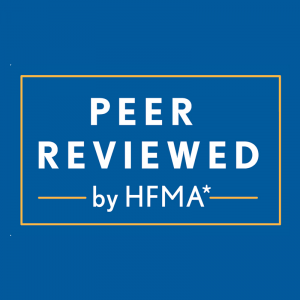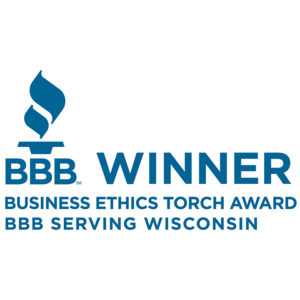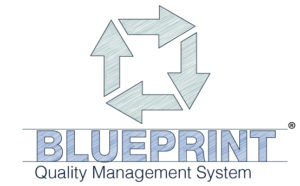Background
With passage of the Affordable Care Act (ACA), the Internal Revenue Service was directed to establish Section 501r of the Internal Revenue Code. This directive called for new requirements – which must be met in order to maintain federal charitable status – to be placed upon our nation’s non-profit hospitals.
What are the Section 501r Requirements?
Section 501r establishes the following requirements:
- Financial Assistance Policy (FAP)
- Limitation on Charges for (FAP-eligible patients)
- Billing and Collection Policy
- Community Health Needs Assessment (CHNA)
Though final IRS regulations have not been issued, proposed regulations on financial assistance, limitations on charges, and billing/collection requirements were released in June of 2012. The IRS has stated that these proposed regulations may be relied on until final or temporary regulations are issued and published in the Federal Register.
In Part 1 of this article, we focused on the financial assistance policies and limitation on charges. In this article, the focus will be on billing and collection policies.
Collection Actions in Event of Non-Payment
A written billing and collection policy must be established. It can stand alone as a separate policy or be incorporated into an overall financial assistance/billing and collection policy. The policy must describe the permissible collection actions that may be taken in the event of nonpayment and the time frame for taking such actions. As with the financial assistance policy, this policy must be made available free of charge. The policy applies to both internal hospital collection efforts and efforts undertaken by authorized attorneys or third party collection agencies.
Extraordinary Collection Actions
Hospitals are prohibited from engaging in extraordinary collection actions (EAC) prior to making reasonable efforts to determine whether a patient is eligible for financial assistance. The proposed rule defines extraordinary collection actions as those taken against a patient by the hospital, or a third party acting on behalf of the hospital, that require a legal or judicial process.
They include, but are not limited to the following:
- Reporting adverse information to credit bureaus
- Initiating civil litigation
- Liens on property
- Foreclosure on real estate
- Attaching or seizing bank accounts
- Causing an individual’s arrest
- Body attachments
- Garnishment of wages
- Sales of debt to another party
Reasonable Efforts
The proposed rule describes what constitutes a reasonable effort to inform a patient of financial assistance. The efforts include notifying patients of available assistance and how to apply for it during a 120-day notification period, which begins after issuing the first bill to the patient. During this time, hospitals are prohibited from engaging in extraordinary collection actions prior to making a determination on whether an individual is eligible for assistance under the financial assistance policy (FAP).
If a patient has not submitted an FAP application within the 120-notification period, a hospital may commence collection actions. Caution should be used, however, since patients have an additional 120 days to apply for assistance; if they are found eligible, extraordinary collection actions must be reserved.
The notification period is then followed by a 120-application period. During this time a patient may submit an application for assistance and the hospital is required to accept and process it. If an application is incomplete, the hospital must refrain from collection actions and provide the applicant with information on what will be needed to complete the application.
Hospitals are also required to distribute a plain language summary of the FAP and offer an application prior to discharging a patient. This summary must also be included in at least three billing statements and other written communication during the notification period or until an application is received during this timeframe. Hospitals are also required to inform patients of the FAP in all oral communication regarding payment of outstanding bills due during the notification period.
Hospitals are required to provide at least one written notice informing patients of collection actions that may be taken, a minimum of 30 days prior to commencing such actions, if patients do not submit an application for assistance or pay the outstanding balance.
Anti-abuse
The proposed rule contains an “anti-abuse” rule. It states that a hospital will not have made reasonable efforts to determine FAP eligibility if the hospital bases its decision on inadequate information. An example of this would be a decision based on data that could be unreliable, incorrect, or obtained from the individual under duress or through the use of coercive practices. A waiver signed by a patient stating that he or she does not wish to apply for financial assistance does not constitute a determination of financial assistance eligibility. It will not satisfy the reasonable effort requirement to determine whether a patient is FAP-eligible prior to engaging in ECAs.
Medical Debt Advisory Task Force
In anticipation of this pending legislation, as well as the likely oversight of the Consumer Financial Protection Bureau, HFMA partnered with ACA International and convened a task force to establish best practices for the fair resolution of patients’ medical bills that could be adopted across the industry. Tina Hanson of State Collection Service and I served on this task force.
This will serve as an important asset as you create your policies. The best practice overview and workflow may be found on the HFMA website.
Formal Approval of Governance Board
After the policies have been designed and committed to writing, they must be approved by the hospital governing board or another body authorized to approve such policies. The policies will be considered implemented when they are consistently carried out by the hospital.
Complying with the Section 501r Requirement
As noted above, hundreds of comments were submitted on the proposed Section 501r rules. Certain sections in the proposed rules were controversial and generated significant reaction from the industry. Certainly, how the IRS chooses to respond will remain unknown until they issue the final rule.
But, even absent the final rule, it is clear that hospitals should have formal, written financial assistance and billing/collection policies. Between the guidance issued by the IRS and the information required to be reported on Schedule H, it should be clear to hospitals that certain elements must now be in place.
Section 501r Checklist
The following checklist provides hospitals with the basic requirements that must be met in order to comply with Section 501r and benefit from the federal tax exemption extended to charitable hospitals.
- Written Financial Assistance Policy
- Written Billing and Collection Policy
- Written Non-Discriminatory Emergency Care Policy
- Rationale for amounts generally billed FAP-eligible patients
- Formal process outlining reasonable efforts to inform patients of FAP
- Disclosure of collection actions authorized by Governance Board
- Safeguards to prevent collection actions from being used against financially-needy patients
- Governance Board approval of policies
- Procedures in place to ensure policies are applied uniformly to all patients
Mark Rukavina, Principal of Community Health Advisors, LLC, holds an MBA from Babson College and a BS from the University of Massachusetts in Amherst. He has more than 25 years of experience working on healthcare issues. In his current capacity he provides assistance on issues related to financial assistance, billing and collection, and community benefit requirements for tax-exempt healthcare providers. Mark has testified before US Congressional committees, and has published research and policy briefs.
Prior to establishing Community Health Advisors, Mark served as Executive Director of The Access Project a national, non-profit, research and advocacy organization and before that served as Program Director for a hospital/community partnership in Massachusetts under a national demonstration program sponsored by the American Hospital Association’s Health Research and Educational Trust.
Mark recently served on the Healthcare Financial Management Association/ACA International Medical Debt Advisory Task Force and the Healthcare Financial Management Association’s Price Transparency Task Force.
About State Collection Service, Inc.
Since 1949, State Collection Service has provided quality collection service to countless healthcare organizations.
Through experience and innovation, State Collection Service has grown to become a tremendously credible and nationally-recognized collection agency offering services from pre-registration to bad debt. It is upon the basis of ethical behavior and a dedication to integrity that each State Collection Service employee works to uphold the company’s vision – Partnerships for a Lifetime.
*This article first appeared in “A State Collection Service, Inc. Newsletter Volume 20, Issue 3, Third Quarter 2014”















